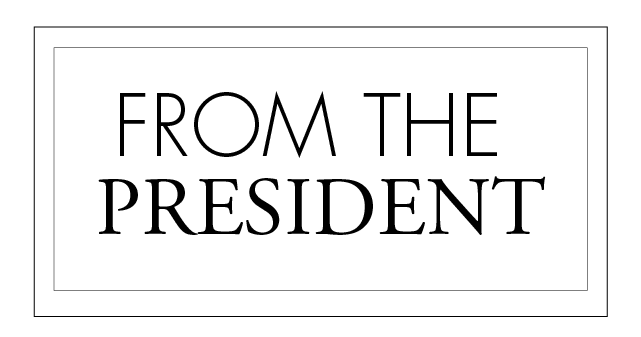 Some might argue that elections are the lifeblood of democracy because they allow us a regular opportunity to evaluate past decisions and to chart new courses as circumstances change. Political contests bring to the forefront the opposing views that live within our society. The battle of ideas culminates at the ballot box where “‘We the people”’ have the honor, privilege, and duty to cast our ballot and ultimately decide the important issues of our day. Our elected leaders (including Bar presidents, for that matter) rotate in and out, but our society is built on a fundamental truth that rises above even the most intense disagreement.
Some might argue that elections are the lifeblood of democracy because they allow us a regular opportunity to evaluate past decisions and to chart new courses as circumstances change. Political contests bring to the forefront the opposing views that live within our society. The battle of ideas culminates at the ballot box where “‘We the people”’ have the honor, privilege, and duty to cast our ballot and ultimately decide the important issues of our day. Our elected leaders (including Bar presidents, for that matter) rotate in and out, but our society is built on a fundamental truth that rises above even the most intense disagreement.
The rule of law is the foundation of our democracy, no matter who emerges victorious at the ballot box. A civil society can and will exist regardless of how ugly an election is, becomes, or was. A civil society exists because, under the rule of law, disputes should be settled according to the established law of the land. And all people, no matter their wealth or power, are subject to those laws.
Rule of law is the sword and shield of a civil society. As attorneys, we are and must be its first defenders. Indeed, rule of law is embedded within the oath all of us take before being admitted to the Bar.
“I will support the Constitution of the United States and the Constitution of the State of Michigan; I will maintain the respect due to courts of justice and judicial officers …”
Being an attorney is not just about arguing on behalf of clients, as popular culture may lead some to believe. Attorneys are uniquely obligated to do what is right and good — no matter what, even when it is not in our own self-interest. It is as much a vocation as it is a profession.
And it is why the words of Roberts P. Hudson, the very first president of the State Bar of Michigan, continue to ring true today and why it is one of my favorite quotes: ‘‘No organization of lawyers can long survive which has not for its primary object the protection of the public.’’
As our world has become more polarized, it is all the more important that we actively work to increase general understanding and awareness of the rule of law and its importance. As a general concept, most people have an understanding of rule of law in the same way they have a basic understanding of fairness and justice.
However, the hyper-politicized world in which we live has, in ways subtle and overt, flamed confusion about the rule of law. This new reality too often, although not exclusively, presents itself in the form of attacks on the judiciary.
Of course, judges can and do have different judicial philosophies — but in all cases, judges are required both ethically and by the Michigan Code of Judicial Conduct to be impartial. Judges hear both sides, interpret the law, and decide the case based solely on its merits.
It’s quite simple really, but it is also easy to mischaracterize.
We see this in many ways. On the federal level, sometimes it’s with simple adjectives — a Biden judge or a Trump judge, a “liberal” judge or a “conservative” judge. Sometimes it’s with vague or direct allegations that a judge acted inappropriately simply for issuing a decision that is contrary to the critic’s individual beliefs.
Let’s be clear: No matter who appointed a judge and no matter the appointee’s political affiliation, judges should always be described as and act as independent interpreters of the law. Even when a judge issues a ruling that is contrary to our personal belief system, the problem is with the law — not the person who weighed all the arguments, precedent, and legal doctrine to determine its applicability on a particular case.
Unlike their counterparts in the other two branches of government, a judge’s job is not to be popular. A judge’s job is to be fair and, like all attorneys, to support the rule of law — no matter what, even when it is not in their own self-interest.
“We the people” need to recognize that the judicial branch is a sacred place designed to ensure that no matter how much we disagree, there is a fair and civil way for our differences to be resolved.